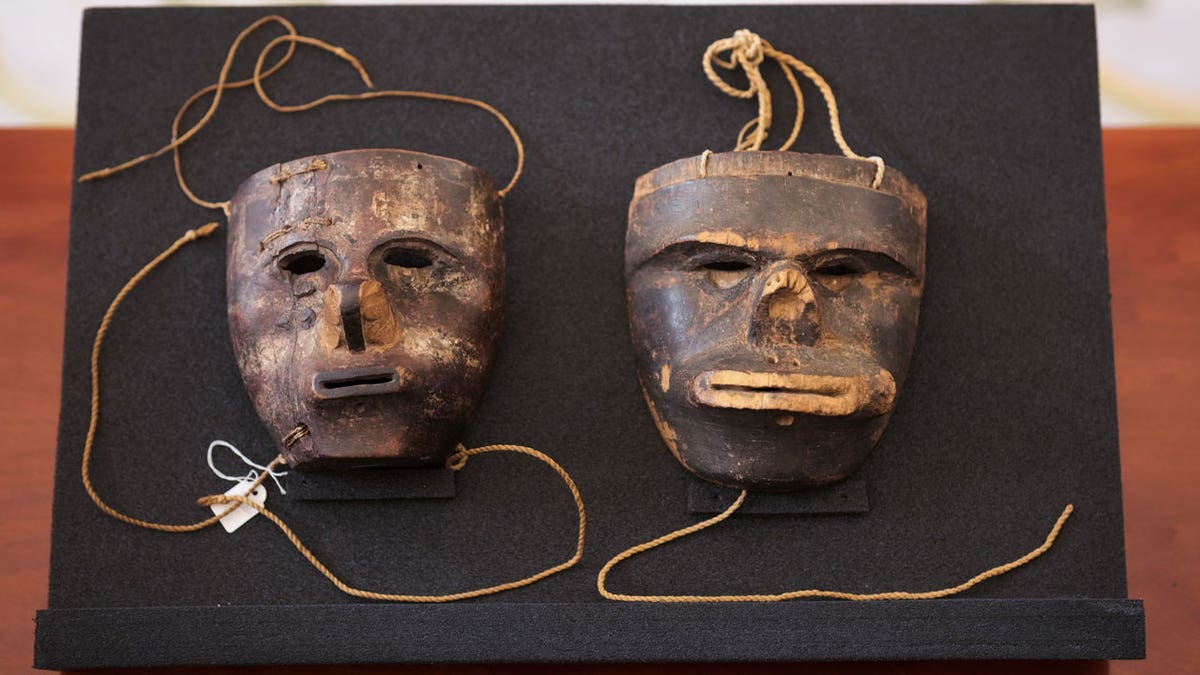Two ancient "sun masks" crafted by the Indigenous Kogi people of Colombia have been returned by Germany after spending over a century in a Berlin museum. The repatriation ceremony, which took place at the Colombian presidential palace during President Gustavo Petro's visit to Berlin, marks a significant step in Germany's ongoing efforts to address its colonial past and return cultural artifacts to their countries of origin.
The wooden masks, dating back to the mid-15th century, hold deep spiritual significance for the Kogi community, who reside in the Sierra Nevada de Santa Marta mountains of northern Colombia. German President Frank-Walter Steinmeier acknowledged the sacred nature of the masks during the handover, expressing his hope that they would find their way back to their rightful place and continue to serve as a link between the Kogi people and nature.

President Petro celebrated the return of the masks and voiced his desire for more Colombian artifacts to be repatriated. He indicated that the Kogi community will ultimately decide the masks' fate, suggesting the possibility of a dedicated museum in Santa Marta while emphasizing the importance of respecting the community's wishes.
The masks were originally acquired in 1915 by Konrad Theodor Preuss, then curator of the precursor to Berlin's Ethnological Museum. Preuss obtained the masks during an extensive research expedition to Colombia, amassing over 700 objects. According to Berlin's museum authority, Preuss was unaware of the masks' age and the restrictions on their sale.
President Steinmeier framed the restitution as part of a broader reassessment of Germany's colonial legacy, a process underway in many European nations. He expressed satisfaction with Germany's prominent role in this movement.
The return of the Kogi masks reflects a growing trend among governments and museums in Europe and North America to address ownership disputes over artifacts looted during colonial times. This follows other recent repatriations, including an agreement between Germany and Nigeria for the return of the Benin Bronzes.
Hermann Parzinger, head of the Prussian Cultural Heritage Foundation, which oversees the Ethnological Museum, highlighted the unique circumstances surrounding the Kogi masks. Unlike many other artifacts, these were not acquired through violent theft, and Colombia was already an independent nation at the time. Preuss purchased the masks from the heir of a Kogi priest, who seemingly lacked the authority to sell them, rendering the acquisition ethically questionable. Parzinger further emphasized the significance of a 2007 U.N. resolution affirming the right of Indigenous groups to the return of artifacts with spiritual and cultural importance.
Comments(0)
Top Comments